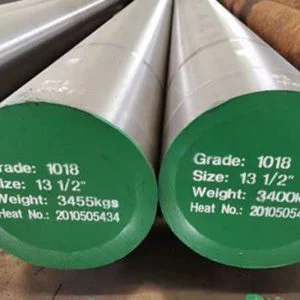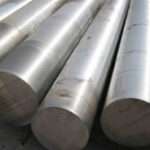Introduction

Carbon tool steel, known for its exceptional strength and durability, has been a staple in manufacturing industries for centuries. This blog post explores the numerous advantages that carbon tool steel offers in various manufacturing processes.
Properties of Carbon Tool Steel
Carbon tool steel is characterized by its high carbon content, typically ranging from 0.60% to 1.50%. This high carbon content contributes to its exceptional hardness and wear resistance, making it ideal for cutting tools, dies, and other applications where toughness and longevity are crucial.
Applications of Carbon Tool Steel
Carbon tool steel finds widespread applications in the manufacturing industry, including:
- Cutting Tools: Carbon tool steel is a popular choice for manufacturing cutting tools due to its remarkable hardness and edge retention. Tools such as drills, saw blades, milling cutters, and lathe tools made from carbon tool steel exhibit superior performance in cutting operations. The high carbon content ensures that these tools maintain sharp edges for extended periods, resulting in enhanced precision and efficiency in machining processes.
- Dies and Molds:In metalworking and plastic injection molding processes, the durability and wear resistance of dies and molds are paramount. Carbon tool steel emerges as a preferred material for crafting dies and molds due to its exceptional wear resistance. The ability of carbon tool steel to withstand prolonged exposure to abrasive materials and high-pressure molding conditions ensures the longevity and reliability of dies and molds, leading to consistent and high-quality production outputs.
- Woodworking Tools: Woodworking demands precision and finesse, and carbon tool steel meets these requirements admirably in the production of various woodworking tools. Chisels, plane blades, carving tools, and gouges crafted from carbon tool steel maintain sharp edges even under rigorous use. Woodworkers benefit from the prolonged edge retention and superior cutting performance of carbon tool steel, resulting in smoother finishes, precise cuts, and increased productivity in woodworking tasks.
Advantages of Carbon Tool Steel
- High Hardness: The high carbon content imparts exceptional hardness to carbon tool steel, ensuring prolonged sharpness and edge retention in cutting applications.
- Excellent Wear Resistance: Carbon tool steel exhibits excellent wear resistance, making it suitable for high-stress applications where tools are subjected to abrasive materials or repetitive use.
- Ease of Machinability: Despite its high hardness, carbon tool steel can be machined relatively easily, allowing for precise shaping and customization of tools and components.
- Affordability: Compared to other high-performance tool steels, carbon tool steel is often more affordable, offering cost-effective solutions without compromising on quality.
- Versatility: Carbon tool steel’s versatility extends across various manufacturing processes, making it a preferred choice for a wide range of applications in different industries.
Comparison Table: Carbon Tool Steel vs. Other Tool Steels

| Property | Carbon Tool Steel | High-Speed Steel | Alloy Tool Steel |
|---|---|---|---|
| Hardness (HRC) | High | Very High | High |
| Wear Resistance | Excellent | Good | Excellent |
| Machinability | Moderate | Moderate | Moderate |
| Cost | Affordable | Moderate | High |
| Applications | General Purpose | Cutting Tools | High-Performance |
Conclusion
In conclusion, carbon tool steel stands out as a versatile and cost-effective material choice for various manufacturing applications. Its exceptional hardness, wear resistance, and machinability make it indispensable in industries ranging from metalworking to woodworking. By leveraging the advantages of carbon tool steel, manufacturers can enhance productivity, efficiency, and product quality.
FAQ
Q:What is carbon tool steel?
A:Carbon tool steel is a type of steel alloy containing a high concentration of carbon, typically between 0.60% and 1.50%. It is renowned for its exceptional hardness, wear resistance, and machinability.
Q:What are the main applications of carbon tool steel?
A:Carbon tool steel finds applications in manufacturing cutting tools, dies, molds, and woodworking tools due to its superior hardness and wear resistance.
Q:How does carbon tool steel compare to other tool steels?
A:Carbon tool steel offers high hardness and wear resistance at a more affordable cost compared to high-speed steel and alloy tool steel. While it may have slightly lower machinability, it remains a versatile and cost-effective choice for many applications.
Q:Can carbon tool steel be heat-treated for further enhancement?
A:Yes, carbon tool steel can undergo heat treatment processes such as quenching and tempering to further enhance its hardness, toughness, and overall performance in specific applications.
Q:Is carbon tool steel suitable for high-temperature applications?
A:Carbon tool steel is not recommended for high-temperature applications due to its lower heat resistance compared to certain alloy steels. For high-temperature applications, other specialized materials may be more suitable.
